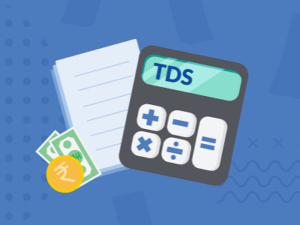The tonnage tax scheme, introduced under the Income Tax Act, provides a simplified and advantageous taxation system for companies involved in the shipping business. Section 115VW outlines the requirements for companies opting for this scheme, emphasizing the importance of maintaining proper accounts and audits. In this blog, we will dive deep into the specifics of Section 115VW and explain how companies can comply with the tonnage tax scheme’s obligations.

What is Section 115VW of the Income Tax Act?
Section 115VW of the Income Tax Act lays down the compliance framework for tonnage tax companies. These companies, engaged in operating qualifying ships, can benefit from the tonnage tax scheme. However, to opt for the scheme, they must adhere to certain financial and reporting requirements.
The section primarily focuses on the following two conditions:
- Maintenance of Separate Books of Account
- Submission of Audit Report by an Accountant
Let’s explore these requirements in detail.
1. Maintenance of Separate Books of Account
To take advantage of the tonnage tax scheme, companies must maintain separate books of account for the business of operating qualifying ships. This is crucial for ensuring transparency in financial reporting.
Maintaining separate accounts means all the income and expenses related to the shipping operations are distinctly recorded. This segregation helps the tax authorities accurately assess the profits or losses from the shipping business, without mixing them up with other business activities the company might be involved in.
By keeping separate books for shipping operations, companies can also provide a clear view of their financial health in this particular segment, which is vital when seeking tax benefits under the tonnage tax scheme.
2. Audit Report by an Accountant
The second compliance requirement is the submission of an audit report by an accountant. The report must be prepared in a prescribed form and duly signed and verified by the accountant, as defined under the Income Tax Act.
Who is an Accountant under the Income Tax Act?
As per the Explanation to Section 288(2) of the Income Tax Act, an accountant refers to a chartered accountant within the meaning of the Chartered Accountants Act, 1949. In certain cases, the accountant may also include other professionals authorized by the government to audit financial statements.
3. Specified Date for Filing the Audit Report
The audit report must be furnished before the specified date mentioned in Section 44AB of the Income Tax Act. Section 44AB pertains to the audit of accounts for businesses or professions whose income exceeds certain thresholds. The deadline for furnishing this report is crucial for maintaining compliance under the tonnage tax scheme.
Section 44AB and Its Relevance
Section 44AB specifies that businesses with gross turnover or receipts exceeding ₹1 crore (for businesses) or ₹50 lakh (for professionals) are required to get their accounts audited. The audit report must be filed with the income tax department by the specified due date—which is typically September 30 of the assessment year.
For tonnage tax companies, adherence to this timeline ensures that they remain eligible for the benefits of the tonnage tax scheme.
Benefits of Complying with Section 115VW
By complying with the provisions of Section 115VW, a tonnage tax company can:
- Avail the Tonnage Tax Scheme: This scheme offers a simplified way of calculating taxable income based on the tonnage of qualifying ships rather than actual profits, which often results in lower tax liabilities.
- Ensure Financial Transparency: Maintaining separate books of accounts helps in creating a transparent and accountable financial structure.
- Avoid Penalties: Filing the audit report on time helps avoid penalties and ensures compliance with tax regulations.
Consequences of Non-Compliance
Failure to maintain separate books of account or not submitting the audit report within the specified date can lead to serious consequences. Non-compliance might result in the disqualification of the tonnage tax scheme benefits for the relevant financial year, thereby leading to higher tax liabilities based on actual profits from the shipping business.
Explanation of Key Terms in Section 115VW
- Qualifying Ships: These refer to ships used for commercial transportation of goods or passengers and are eligible for the tonnage tax scheme.
- Tonnage Tax Company: A company that opts for the tonnage tax scheme for calculating income derived from the operation of qualifying ships.
- Specified Date: The due date for filing the audit report as mentioned in Section 44AB, usually September 30 of the assessment year.
FAQs
What is the tonnage tax scheme?
The tonnage tax scheme allows shipping companies to compute their taxable income based on the net tonnage of their qualifying ships, offering a simplified and potentially lower tax burden compared to regular taxation.
Who can audit the accounts under Section 115VW?
Only a qualified accountant, as defined under Section 288(2) of the Income Tax Act (usually a chartered accountant), can audit the accounts of a tonnage tax company and furnish the report.
What happens if a company doesn’t comply with Section 115VW?
Non-compliance with Section 115VW, such as failing to maintain separate accounts or not submitting the audit report on time, could result in the company losing the benefits of the tonnage tax scheme for that financial year.
Conclusion
Section 115VW of the Income Tax Act ensures that companies opting for the tonnage tax scheme maintain financial discipline by keeping separate books of account and submitting an audit report by the specified date. Compliance with these requirements is essential for availing the benefits of this tax scheme and avoiding potential penalties. By meeting these obligations, tonnage tax companies can enjoy a simplified tax regime tailored to the shipping industry.
If you’re looking for more insights on tax provisions or need help navigating the complexities of the tonnage tax scheme, feel free to reach out to us at SmartTaxSaver.



